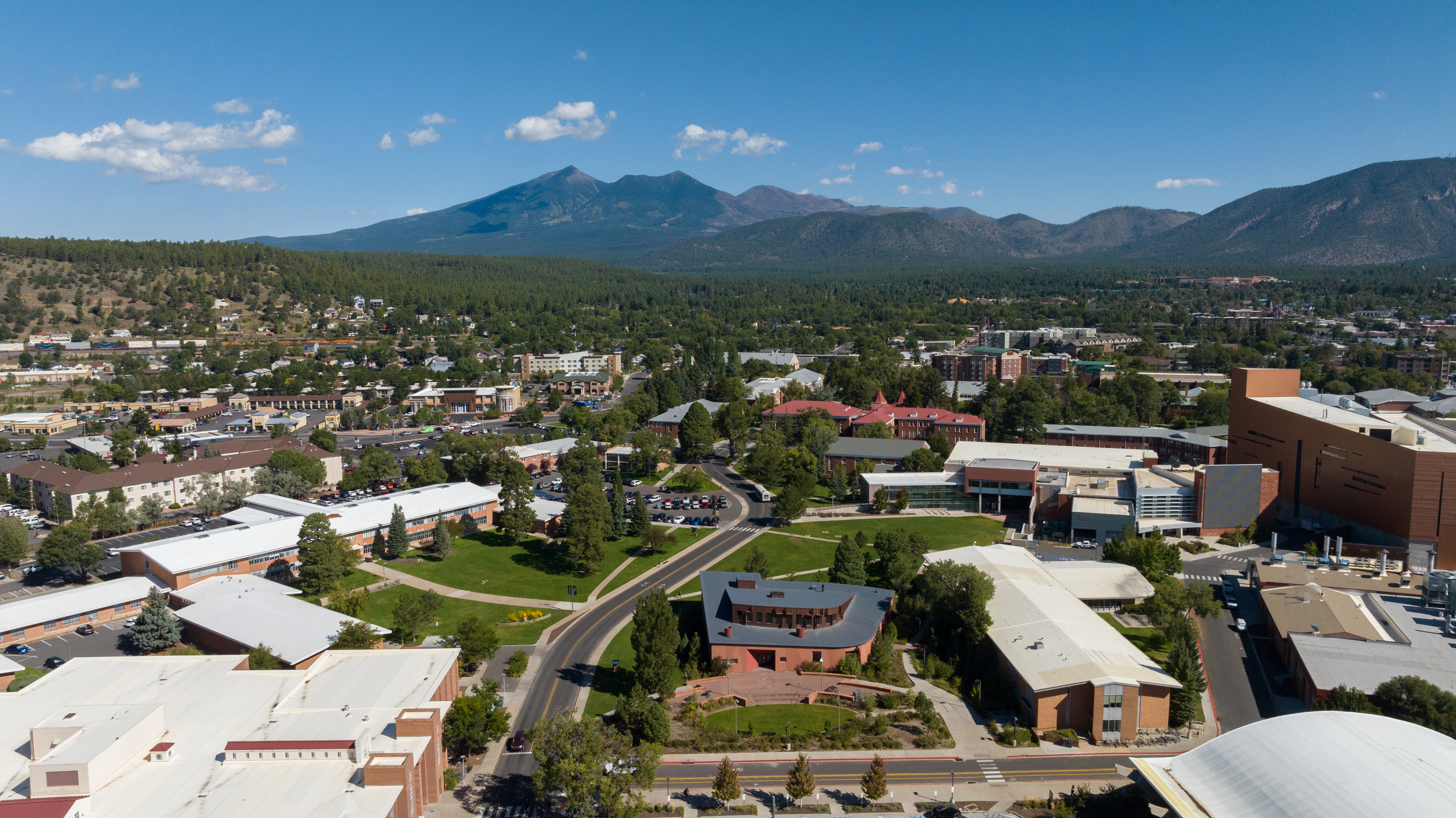Building bridges in a memory care desert
- NAU Psychological Sciences News

- Sep 28, 2025
- 3 min read
From the NAU Review author Mariana Laas

In rural and underserved areas—particularly Native American communities— early signs of dementia often go unrecognized. This could be because access to specialized care is limited, and symptoms are easily mistaken for normal memory loss due to aging. A study headed by associate professor of psychology Eric Cerino, assistant professor of social workMegan McCoy and professor and chair of social work Michael McCarthy is looking to change that by bringing early detection and research opportunities directly to rural communities across northern Arizona.
The Northern Arizona Memory Study, which is funded by the Arizona Alzheimer’s Consortium and has recently been accepted for publication as a scientific research protocol paper in the Journal of Medical Internet Research, provides free brain health workshops, cognitive screenings and opportunities to participate in a paid research study that provides information about ways to promote brain health in everyday life. Outreach efforts have spanned rural areas across northern Arizona, including work with the Hopi community.
“My team thinks about northern Arizona as a memory care desert,” Cerino said. “Access to memory care clinics where you can get a proper diagnosis is hard to come by, with the nearest clinic being in Prescott. We travel to rural community centers and give free brain health workshops and cognitive screenings to understand the potential risks of cognitive impairment. We also provide those affected with referral information and tangible tips and tricks to promote brain health at home.”
The study focuses specifically on those who are at risk of developing dementia. People with subjective cognitive decline are aware of changes happening in their brain and notice their memory getting worse as time goes by, and those with mild cognitive impairment are starting to forget to attend important events and are losing things more often. Cerino hopes that by allocating their resources effectively, they can boost intervention efficacy down the road, helping increase the number of people who may have subtle deficits that might never transition to Alzheimer’s disease and related conditions.
“Dementia is an umbrella term for cognitive challenges, like trouble staying focused, memory issues and processing deficits that are severe enough to interfere with your daily life,” Cerino said. “Early detection is vital to slow the progression of the disease. Some of the easiest ways to distinguish what could be a warning sign versus the typical age-related forgetfulness is asking yourself if the behavior that you’re seeing is interfering with your daily life. If the forgetfulness is happening more often and you’re starting to forget to attend important events or appointments, or if you are having more trouble coming up with words in comparison to other people of the same age, you might be showing some signs of impairment that are worth examining further.”
The study also is looking to learn better ways to support those with memory challenges and their family members by promoting ways to keep their brains healthy and offset the risk of dementia. A recent study from the Lancet Commission estimates that up to 45% of dementia cases can be prevented or delayed by reducing modifiable risk factors and increasing modifiable protective factors.
“Social isolation is a huge risk factor for dementia,” Cerino said. “Promoting social connections is one of the main modifiable risk factors that can help protect you. Others include proper nutrition, with green vegetables and omega-3 fatty acids, aerobic exercise and protecting your mental health.”
As for advice on how to keep the brain healthy as we age, Cerino said the best way to do it is by constantly pursuing new challenges, like meeting new people, changing your routine, having intergenerational conversations and getting quality sleep.
“If you think about your brain as an elastic band, you can exercise and expand it to promote something called neuroplasticity,” Cerino said. “You can strengthen your neural connections through challenge and engagement. If you keep the elastic band stale, it can snap. If you push yourself and challenge yourself in new experiences, putting yourself outside of your comfort zone, you’re promoting strength in neural networks in your brain.”
The team recently had its inaugural Hopi Dementia Education Symposium in Moenkopi, in collaboration with the Hopi-Tewa Women’s Coalition to End Abuse, The Hopi Tribe’s Office of Aging & Adult Services, Arizona Complete Health and the Arizona Governor’s Office of Youth, Faith, & Family. More than 100 Hopi caregivers attended, promoting brain health and hosting an activity room for people facing dementia. The symposium was another way to share resources and information about the Northern Arizona Memory Study, hoping to create awareness about dementia within the Hopi community.




Comments